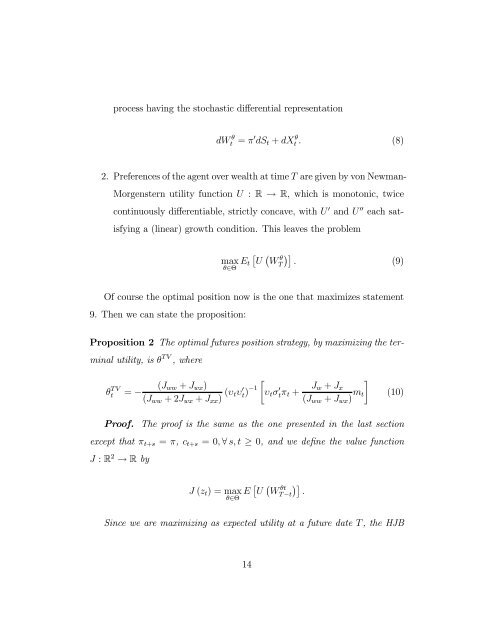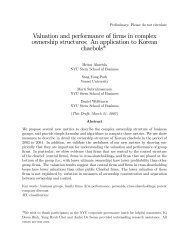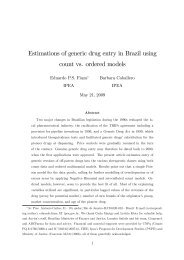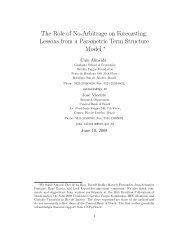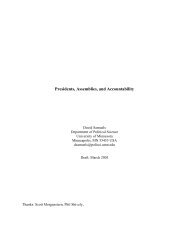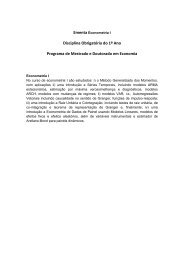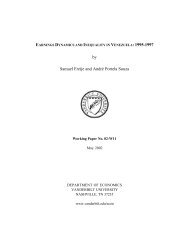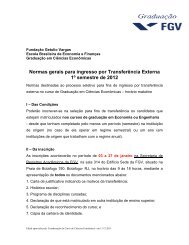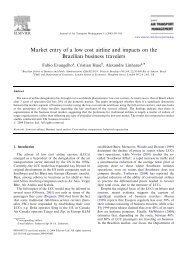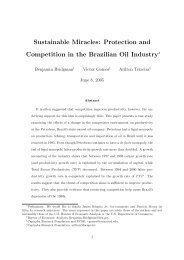Dynamic Hedging with Stochastic Differential Utility
Dynamic Hedging with Stochastic Differential Utility
Dynamic Hedging with Stochastic Differential Utility
Create successful ePaper yourself
Turn your PDF publications into a flip-book with our unique Google optimized e-Paper software.
process having the stochastic differential representation<br />
dW θ<br />
t = π 0 dS t + dX θ t . (8)<br />
2. Preferences of the agent over wealth at time T are given by von Newman-<br />
Morgenstern utility function U : R → R, which is monotonic, twice<br />
continuously differentiable, strictly concave, <strong>with</strong> U 0 and U 00 each satisfying<br />
a (linear) growth condition. This leaves the problem<br />
max E £ ¡ ¢¤<br />
t U W<br />
θ<br />
T . (9)<br />
θ∈Θ<br />
Of course the optimal position now is the one that maximizes statement<br />
9. Then we can state the proposition:<br />
Proposition 2 The optimal futures position strategy, by maximizing the terminal<br />
utility, is θ TV , where<br />
θ TV<br />
t<br />
·<br />
(J ww + J wx )<br />
= −<br />
(J ww +2J wx + J xx ) (υ tυ 0 t) −1 υ t σ 0 tπ t +<br />
J ¸<br />
w + J x<br />
(J ww + J wx ) m t<br />
(10)<br />
Proof. Theproofisthesameastheonepresentedinthelastsection<br />
except that π t+s = π, c t+s =0, ∀ s, t ≥ 0, andwedefine the value function<br />
J : R 2 → R by<br />
J (z t )=max<br />
θ∈Θ E £ U ¡ W θt<br />
T −t¢¤<br />
.<br />
Since we are maximizing as expected utility at a future date T , the HJB<br />
14


